Corrosion Inhibitor Testing
Element’s corrosion inhibitor testing ensures your chemicals are correctly applied and effective at corrosion reduction. Prolong the lifespan of your metals and alloys, and reduce corrosion-related failures and defects, with robust expert-led testing of corrosion inhibitors for even the most challenging of environments.
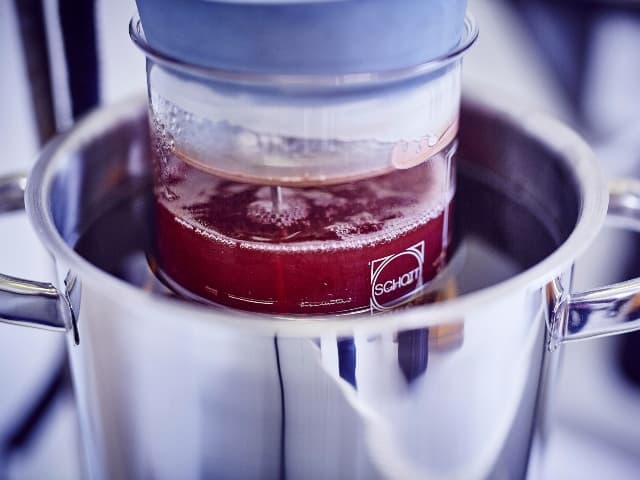
What is Corrosion Inhibitor Testing at Element?
Corrosion inhibitors are chemicals added to metals or alloy to reduce corrosion. Testing is important to ensure they are applied correctly and effectively reduce corrosion, helping to protect metal applications from damage and ensuring longevity. Without proper Corrosion inhibitor testing, the inhibitors may not be applied correctly, leading to failures due to general and localized corrosion, as well as under deposit corrosion. These failures can impair the function of the metal, causing leaks, bursts, and loss of operational performance. Our testing helps protect your metal applications from damage while ensuring longevity and operational reliability.
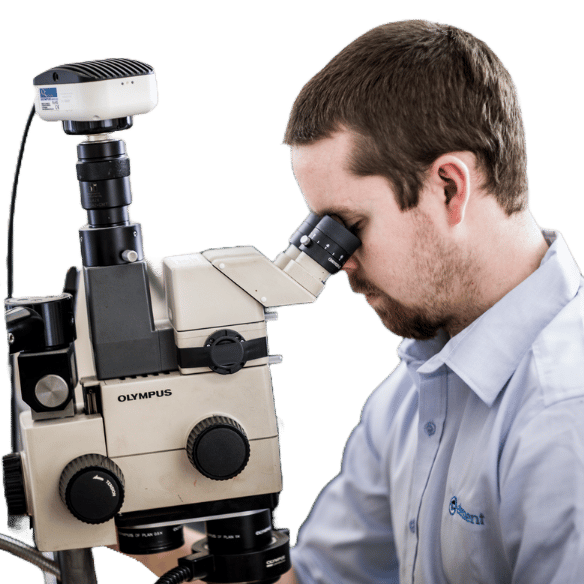
What Can Element Offer You For Corrosion Inhibitor Testing?
Key tests offered
Key tests offered
Element's corrosion inhibitor testing portfolio employs advanced electrochemical methods that accurately replicate various service environments. We provide comprehensive analysis using industry-standard techniques that assess both the immediate and long-term effectiveness of your corrosion inhibitors.
- Potentiodynamic Polarisation testing
- Linear Polarisation Resistance (LPR)
- Electrochemical Impedance Spectroscopy (EIS)
- CO2 corrosion testing
- H2S corrosion testing
- Galvanic corrosion testing
Materials and components we test
Materials and components we test
We perform comprehensive testing on metals, carbon steel, and corrosion-resistant alloys used in critical oil and gas applications. Our laboratories can test materials under conditions that precisely simulate your operational environment, including sweet (CO2) and sour (H2S) conditions. We evaluate your specific materials to determine how effectively corrosion inhibitors protect them, providing actionable insights to improve performance and lifespan.
- Carbon steel components for pipelines
- Corrosion-resistant alloys for challenging environments
- Metal components for oil and gas applications
- Custom material testing for specific operational conditions
Methods and solutions offered
Methods and solutions offered
We deliver customized testing approaches tailored to your unique project requirements. Our experts develop specific testing methodologies that simulate your exact operational conditions, providing recommendations that directly address your corrosion challenges. Test programs are designed to identify the most practical combination of corrosion inhibitors for your specific metals and alloys.
- Customized testing approaches for project-specific requirements
- Fast and accurate test results with detailed analysis
- Expert recommendations for optimal corrosion prevention
- Comprehensive assessment across potential operating environments
- Simulation of exact operating conditions for reliable results
Unique Tests for Unique Projects
Our experts offer specialized testing services, tailored to your unique project needs. We are committed to delivering fast and accurate results for corrosion inhibitor testing using state-of-the-art testing laboratories. Our facilities can simulate a wide range of environments, including high-pressure, high-temperature, sweet, and sour conditions. We take pride in providing customized testing approaches, analyses, and recommendations to meet your dynamic requirements within the oil and gas industry.
Prolong Your Product Lifespan
With custom corrosion testing, we can help you extend your infrastructure's lifespan, reducing the need for costly repairs and replacements. This leads to significant cost savings and promotes environmental sustainability. Prioritizing the lifespan of oil and gas pipelines is essential for maintaining the operational efficiency of your project and ensuring it produces a reliable energy supply.
Cutting-edge equipment we use
Cutting-edge equipment we use
Our state-of-the-art testing laboratories can accurately replicate the extreme conditions your materials face in real-world applications. Using advanced equipment, we simulate high-pressure, high-temperature, and various flow conditions that mirror your operational environment.
- HPHT dynamic autoclaves for extreme condition testing
- Flow regime simulation equipment
- Acid gas (sweet and sour) testing apparatus
- Electrochemical monitoring systems for precise measurements
- Rotating Cylinder Electrode (RCE) equipment
- Flow loop equipment for sweet condition testing
Which labs offer this service
Which labs offer this service
Our team operates from Energy hubs across the world, providing global access to our expert capabilities. Find your nearest Energy hub on our Locations Page.
Standards we test to and materials we test
Our corrosion inhibitor testing follows the most relevant ISO and ASTM standards to ensure compliance and reliability of results.
- ASTM G3
- ASTM G5
- ASTM G31
- ASTM G46
- ASTM G59
- ASTM G61
- ASTM G71
- ASTM G102
- ASTM G106
- ASTM G108
- ASTM G170
- ASTM G185
- ASTM G202
- ASTM G215
- ISO 6614
- ISO 16773
- NACE TM0169
- NACE TM0196
Oil and gas applications
- Carbon steel components and pipelines
- Corrosion-resistant alloys for extreme environments
- Metal components for various applications
- Pipeline materials under varying conditions
Environmental conditions
- Materials under sweet (CO2) conditions
- Components in sour (H2S) environments
- Metals in high-pressure applications
- Alloys in high-temperature settings
Your Challenges, Our Solutions
Preventing costly infrastructure failures
Meeting regulatory requirements with confidence
Simulating your exact environmental challenges
Maximizing infrastructure lifespan, minimizing costs
Element Experts at your service
Why Choose Element
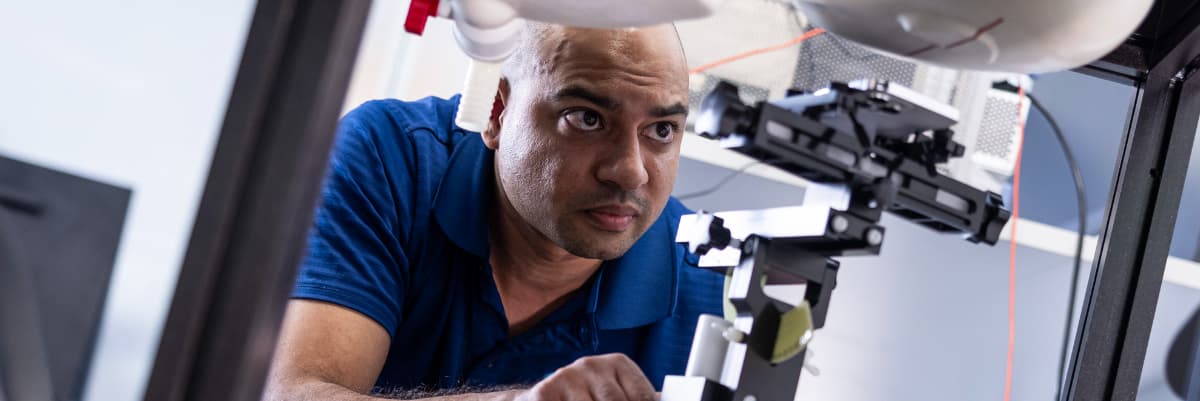
Enhance Safety & Compliance
Reduce Costs & Mitigate Risk
Comprehensive Testing & Insights
Global Expertise & Support
But don't just take our word for it
See what others have to say about partnering with Element
Frequently asked questions
How can corrosion modeling help my operations?
Corrosion modeling using Computational Fluid Dynamic methods accurately predicts potential erosion locations within oil and gas pipelines. This preventative approach identifies problem areas before failure occurs, allowing targeted application of corrosion inhibitors where they're most needed.

Explore our global network of labs and find your nearest location
VIEW ALL LOCATIONSRelated services

Oil and Gas Corrosion Testing Services
Element's oil and gas corrosion testing identifies material vulnerabilities, supports compliance, and prevents failures through advanced simulation, predictive modeling, and testing in extreme environments.
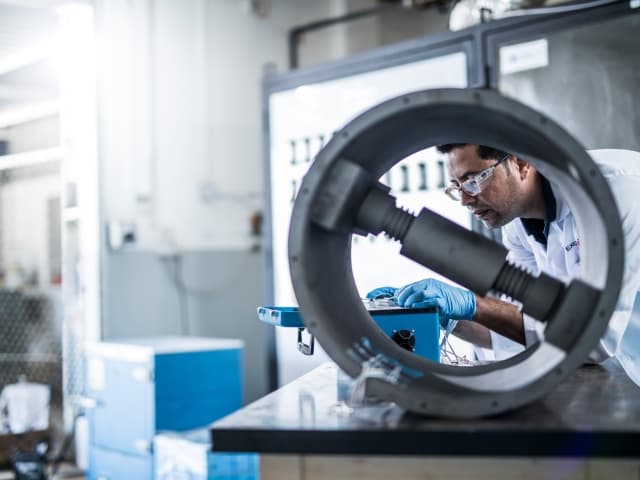
Sour Service Corrosion Testing for NACE MR0175/ISO 15156 Compliance
Element provides industry-leading sour service corrosion testing, helping oil and gas companies mitigate corrosion risks, comply with NACE MR0175/ISO 15156, and enhance material reliability in challenging environments.
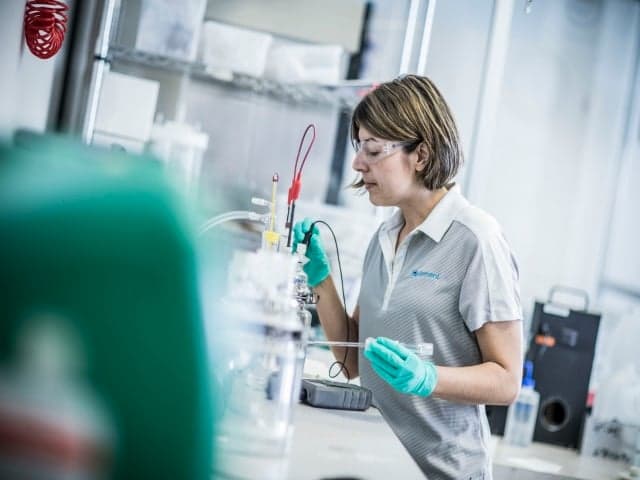
Electrochemical Corrosion Testing
Element offers electrochemical corrosion testing to identify material risks, enhance durability, and support informed material selection across industries.



